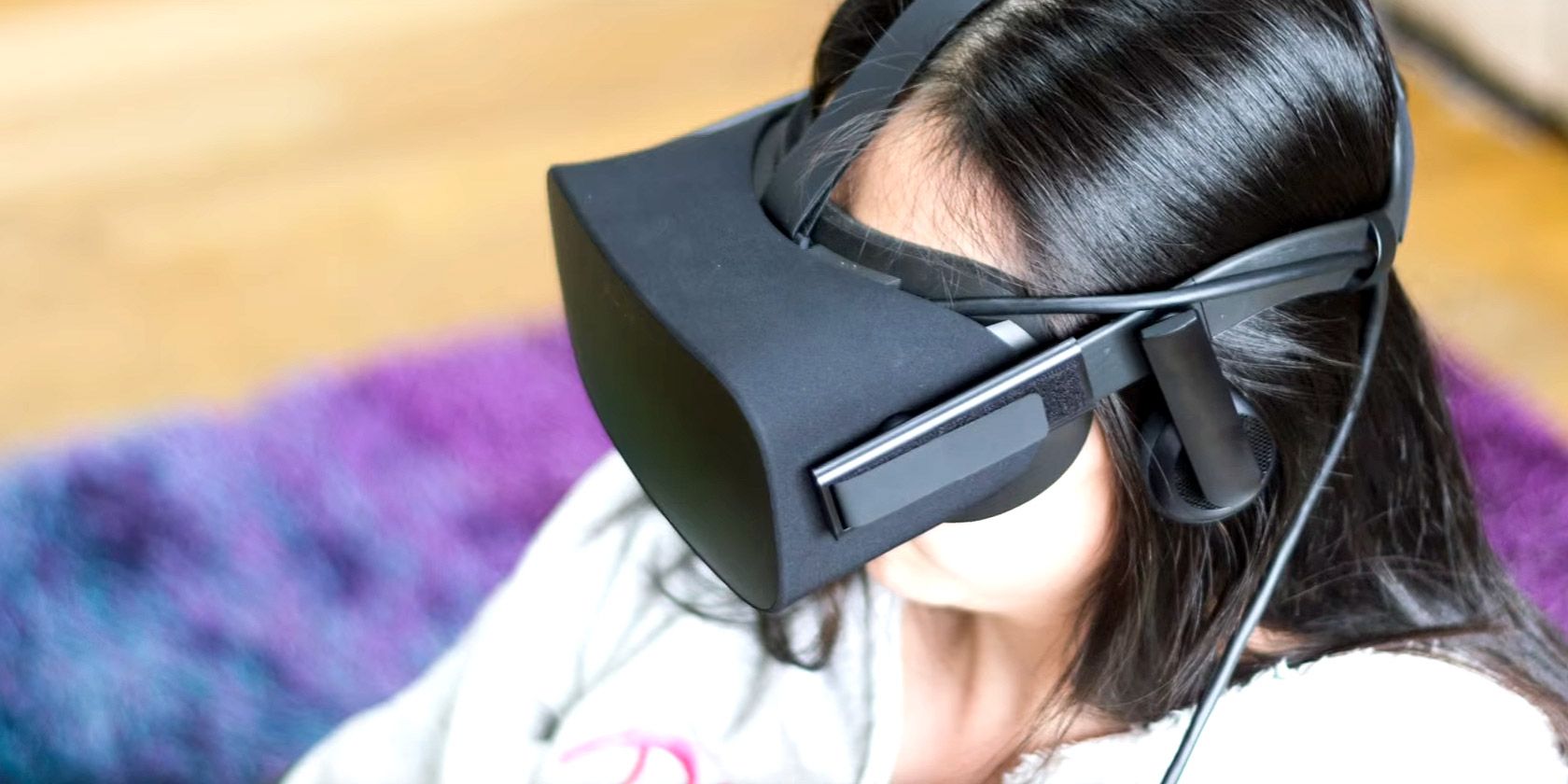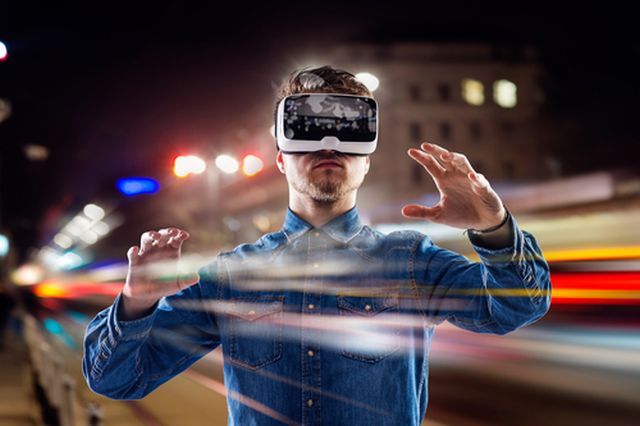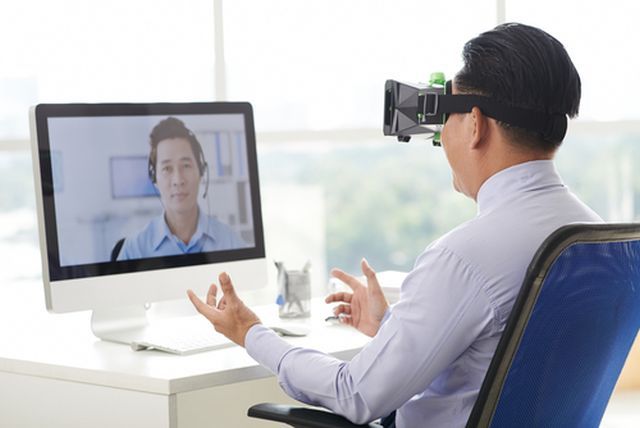Every month, virtual reality is getting closer to becoming a part of the mainstream. It only makes sense that at some point, it'll likely be as conventional as gaming consoles, personal computers and smartphones -- but how will VR impact our lives and society?
As the possibility of a virtual reality room in every home becomes more likely as time goes on, this question is especially important for people who are introverted. Will virtual reality be embraced by introverts, or shunned? Will it enhance their relationships, or further isolate them from society?
The psychological and cultural impact of virtual reality is going to be tremendous, so exploring these questions now is important.
How Will Introverts Respond to VR?
Before getting started, it's important to point out that "introvert" is not a black-and-white term. The definition of it is different depending who you ask, but if you are introverted, you do understand what it means to be one.
I prefer to call it a wonderful appreciation for solitude, and a healthy, deep grasp of one's own inner being. Few people think deeper, develop more compelling insights, and are quite as creative as true introverts.
How will the future of virtual reality affect people who are introverted then?
Here are some reasons a world filled with virtual reality will appeal so much to introverts.
- Introverts don't give as much social weight to in-person facial expressions as extroverts do (according to a study by the Salk Institute for Biological Sciences in La Jolla, California).
- Many introverts enjoy short stints of socializing, but need a way to easily exit when their energy stores run low. As Dr. Laurie Helgoe at Psychology Today describes, introverts find that "acting counter-dispositionally is depleting".
- According to Scientific American, researchers found that unlike introverts, extroverts tend to gain great pleasure from the rewards of exploring a physical environment - particularly the social attention involved in risky in-person activities like sky-diving, downhill skiing or similar activities. Introverts, however, are more content with environments where environmental rewards are not present.
- Virtual reality provides introverts with a small measure of social interaction that they crave, without the over-stimulation of real-world social environments that they don't.
- Studies show that while extroverts live in the moment, introverts enjoy more imaginative, abstract thought. The worlds that are available in a virtual reality environment -- world that may stretch our imaginations -- will surely appeal to the deep-thinking, introverted mind.
So, what specific virtual reality activities will particularly appeal to introverts in the future? Let's take a look.
Simulated Group Exercise
When you consider the act of going to a gym, where there's a whole bunch of sweaty people, obnoxious weight-lifters grunting and slamming weights, and vain people flaunting themselves everywhere you look -- it's not hard to understand why the gym isn't an introvert's favorite place in the world.
In the future though, virtual reality may allow you to "go to the gym", without actually having to be around those obnoxious people. Whether the world is simulated, or includes real people going to the same gym in the form of an avatar, the experience will include the positive social element of working out with other people, without the additional environmental stimuli that introverts really don't like.
In fact, research shows that a virtual gym may actually help people get even more in shape than just working out alone. Why? Because your avatar could actually motivate you.
According to research at Stanford's Virtual Human Interaction Lab, something called the "mirror neuron effect" gave people tremendous motivation to do what their virtual avatars were doing -- meaning, as the virtual avatar exercised alongside the person and virtually lost weight, it inspired and motivated the participants more than those who did not use virtual reality.
This is especially compelling to the imaginative mind of the introvert, who may be more likely to enter into an inner dialogue where the success of the avatar may psychologically represent the success of the introvert.
If an introverted person could remotely take an exercise class with a group of other people who were also represented as virtual avatars, it's really the best of all possibilities -- the chance to have some limited social interaction without small, meaningless chit-chat, and the ability to simply turn off the experience and skip over the awkward and uncomfortable locker room experience.
Multiplayer Virtual Games
One of the most appealing activities for introverts in this great, future world of VR will likely be virtual gaming. The elaborate and exotic virtual worlds of future games will largely appeal to imaginative introverts who greatly enjoy deep, abstract thought and meaningful experiences.
And the ability to do so within a safe buffer zone of the game experience is even more appealing. Players can portray themselves as an avatar that is maybe an idealized version of themselves. In addition, the focus of the social interaction is the game - not idle chit-chat or meaningless conversation.
The focus of the game and the ability to use avatars can help to polish over any social misgivings or deficiencies that the introvert may believe that they have -- much like the games provide the physically challenged with the opportunity to live a non-restricted virtual life.
In his book "Virtual Reality is Getting Real", John Briggs explains that:
"VR-enhanced communications will allow those with restricted mobility, confined to their homes, to interact more fully and humanly with the outside world. Because they will use avatars and augmented and assistive technologies on the Internet, they need not reveal to anyone that they have a disability."
This isn't much different than how many friends often meet up in the online gaming communities of today. The gaming focus provides the ability to learn more about the personalities, the intelligence and the ideals of people, before making the decision as to whether they would be enjoyable to be around in person. In much the same way, the virtual reality world of the future will provide introverts with the same opportunity.
Virtual Social Training
Even though most introverts get drained by the experience of social interaction, or situations that might involve more social attention - like giving a presentation - they aren't necessarily experiences that the introvert dislikes or tries to avoid.
In fact, many introverts seek out such opportunities in a limited way. One way that virtual reality in the future may help introverts better explore those opportunities without experiencing so much mental drain is through virtual training.
Imagine being able to virtually simulate the experience of giving a speech in front of a large audience.
This isn't science fiction. In fact, at the Bloomberg Technology Conference in 2015, Bloomberg demoed its own VR software that you could use to experience standing in front of an audience and giving a presentation in a conference room, complete with a big screen TV displaying your slides, and a disinterested audience -- a perfect situation for a true introvert to train.
The cool thing about the Bloomberg software was that it actually tracked your eyes and could tell you whether you were gazing too much at one side of the room, or returning your stare to one particular person.
For introverts who tend to focus more on the content of the message than on body language or facial expressions, training in such an environment can be a godsend.
Virtual Chat Rooms and Meetings
It's easy to see how the Internet, and the ability to meet remotely or in a chat room has already boosted the success of introverts. As Steve Tobak explains for CBS MoneyWatch, such technologies have helped grow the field of CEOs and entrepreneurs who are surprisingly quite introverted by nature.
"Technology itself has made it less important to be physically present and stand up in front of a room and speak - something that introverts find the most challenging. The Internet, email, virtual meetings, social networking, and distributed work environments, have fundamentally changed the way leaders communicate with their employees, customers, and stakeholders."
With less emphasis on face-to-face situations and not as much of a need for interpreting facial or verbal communication cues, these introverted leaders can instead focus on the message and on establishing a deeper and more meaningful dialogue with colleague and staff. Introducing virtual reality as a meeting solution will actually enhance that dialogue by re-introducing facial cues in a less intimidating environment.
This isn't to say that introverted leaders are better leaders, but only that introverted people are able to become just as effective at leading, thanks to technologies that allow them to leverage their particular strengths. Coming virtual reality technologies will only provide the introverted leader with even more of such tools.
As you can see, both historical trends and social research shows that technology has always been an advantage for introverts in society, and the possibility of having a virtual reality room inside of every home will further enable introverts to socialize more than ever before, while also maintaining the convenience of solitude with just a flip of the switch.
For introverts, it's like the best of both worlds.
Are you introverted? Do you feel like technology has enhanced your life in the ways described above? Do you envision virtual reality enhancing your life even further in the future? Share your thoughts in the comments section below!
Roobcio via Shutterstock, LUMOimages via Shutterstock, Nejron Photo via Shutterstock, Halfpoint via Shutterstock, Photographee.eu via Shutterstock, Dragon Images via Shutterstock







